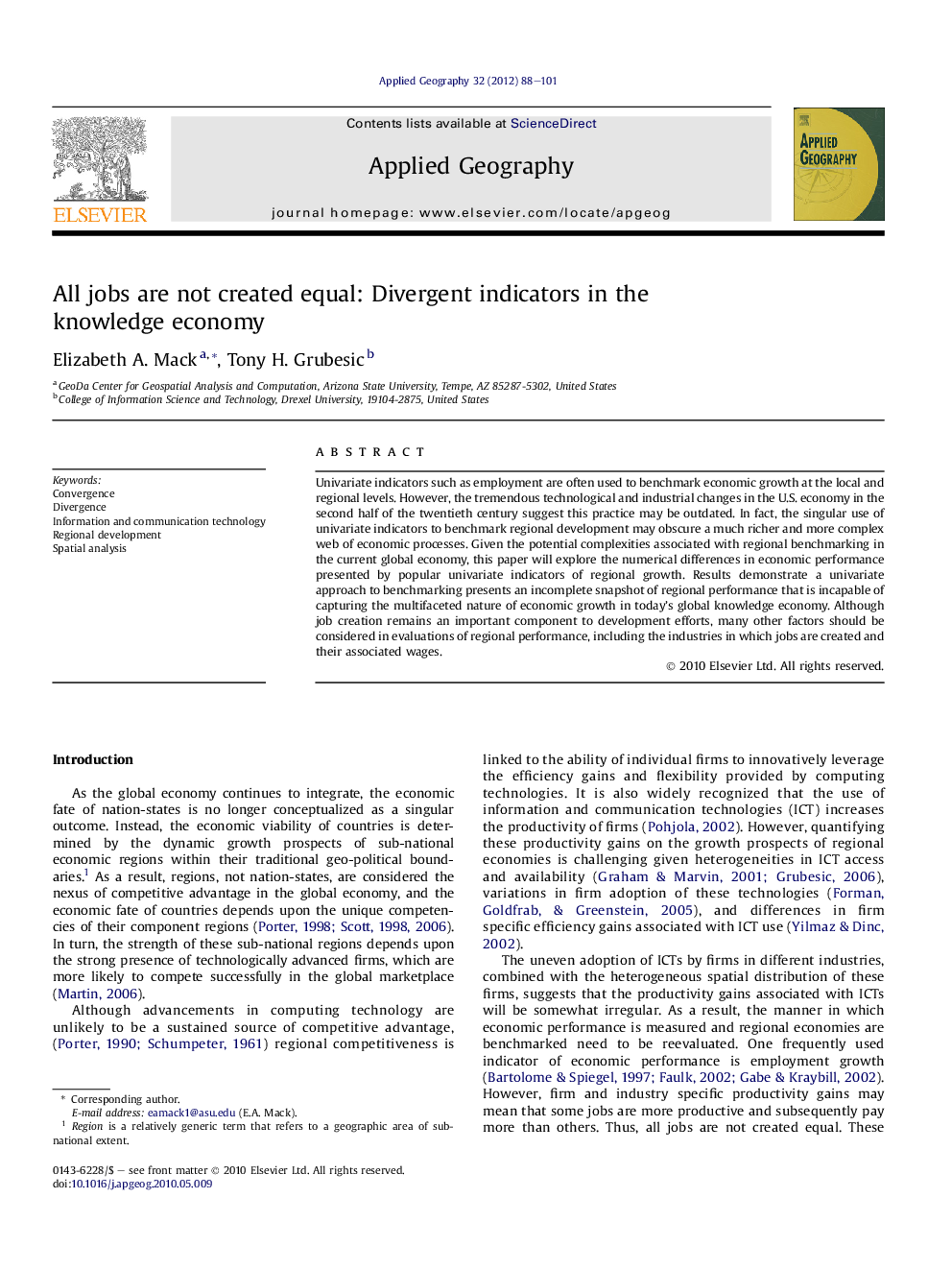| Article ID | Journal | Published Year | Pages | File Type |
|---|---|---|---|---|
| 83522 | Applied Geography | 2012 | 14 Pages |
Univariate indicators such as employment are often used to benchmark economic growth at the local and regional levels. However, the tremendous technological and industrial changes in the U.S. economy in the second half of the twentieth century suggest this practice may be outdated. In fact, the singular use of univariate indicators to benchmark regional development may obscure a much richer and more complex web of economic processes. Given the potential complexities associated with regional benchmarking in the current global economy, this paper will explore the numerical differences in economic performance presented by popular univariate indicators of regional growth. Results demonstrate a univariate approach to benchmarking presents an incomplete snapshot of regional performance that is incapable of capturing the multifaceted nature of economic growth in today’s global knowledge economy. Although job creation remains an important component to development efforts, many other factors should be considered in evaluations of regional performance, including the industries in which jobs are created and their associated wages.
